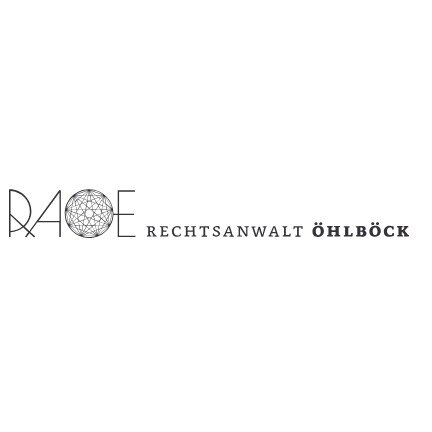Best Art & Cultural Property Law Lawyers in Austria
Share your needs with us, get contacted by law firms.
Free. Takes 2 min.
Or refine your search by selecting a city:
List of the best lawyers in Austria
About Art & Cultural Property Law in Austria
Art & Cultural Property Law in Austria is a specialized area of legal practice that focuses on the protection, preservation, and management of cultural heritage and art assets within the country. This field of law encompasses a wide range of issues including but not limited to the legitimacy of art transactions, restitution of cultural property, intellectual property rights associated with artworks, and legal measures to protect archaeological sites and historical monuments. Austria, with its rich historical and cultural backdrop, has robust laws and regulations in place to safeguard its cultural heritage while promoting the lawful enjoyment and trade of art and cultural artifacts.
Why You May Need a Lawyer
Legal expertise in Art & Cultural Property Law may be necessary in various situations such as:
- Art collectors or dealers engaging in buying, selling, or appraising artworks.
- Individuals or institutions dealing with the restitution or repatriation of cultural artifacts.
- Museums or galleries seeking guidance on the acquisition or loan of artworks.
- Artists wanting to protect their intellectual property rights or handle copyright infringements.
- Owners of estates containing artistic or cultural property items facing issues related to inheritance or succession planning.
Local Laws Overview
Austrian law concerning art and cultural property is primarily governed by the Federal Monuments Protection Act, which protects cultural heritage from unlawful trade and export. Additionally, Austrian intellectual property law ensures that creative works are protected under copyright rules. There are also several treaties and international agreements that Austria is a part of, aiming to curb illegal export and trafficking of cultural property, namely the 1970 UNESCO Convention. These laws ensure that cultural properties are preserved, and any transactions involving them are conducted legitimately.
Frequently Asked Questions
What is considered cultural property under Austrian law?
Under Austrian law, cultural property includes any items of artistic, archaeological, ethnographic, or historical significance.
What are the consequences of illicit trafficking of cultural property?
Illicit trafficking can lead to severe penalties including fines, imprisonment, and the return of unlawfully obtained items to their rightful owners or countries.
Who can claim restitution of a cultural object?
Cultural objects can generally be claimed by individuals or countries that can prove their legitimate ownership or cultural heritage connection to the item in question.
Does Austria participate in international efforts concerning cultural property?
Yes, Austria is a signatory to international conventions like the 1970 UNESCO Convention that aim to protect cultural property and prevent its illicit trade.
How are disputes over cultural property resolved?
Disputes are typically resolved through negotiation, mediation, arbitration, or, if necessary, legal proceedings in Austrian courts.
What is the role of the Federal Monuments Office?
This office is responsible for protecting monuments and cultural heritage sites across Austria, ensuring compliance with preservation laws.
How can artists protect their works in Austria?
Artists can protect their works through copyright registration and can seek legal advice to manage rights and royalties effectively.
Can privately-owned artworks be designated as cultural heritage?
Yes, in certain circumstances, privately-owned artworks can be designated as cultural heritage, which can impose restrictions on their sale or export.
What are the rules for exporting cultural property from Austria?
Exporting cultural property requires a permit, ensuring that items of significant cultural value are not permanently removed from the country.
Do I need a permit to display foreign artworks in Austria?
Exhibition permits may be required, especially for artworks considered of significant cultural heritage, which also ensures proper insurance and protection measures are in place.
Additional Resources
Several resources can be invaluable for individuals seeking more information or assistance:
- The Federal Monuments Office of Austria for cultural property guidelines.
- The Austrian Copyright Society for intellectual property rights issues.
- International Art and Cultural Heritage Project (ICHAP) for international legal frameworks.
- Legal associations specializing in cultural property law.
Next Steps
If you need legal assistance in art and cultural property law, it is advisable to:
- Consult with a specialized lawyer who has experience in Austrian art and cultural property law.
- Gather all relevant documentation and evidence to support your legal query or case.
- Contact local legal associations for recommendations of reputable professionals in this field.
- Consider the costs associated with legal representation and explore various funding options if necessary.
Taking these steps can help in effectively navigating the complexities of art and cultural property law in Austria and ensuring that your rights and interests are properly represented and safeguarded.
Lawzana helps you find the best lawyers and law firms in Austria through a curated and pre-screened list of qualified legal professionals. Our platform offers rankings and detailed profiles of attorneys and law firms, allowing you to compare based on practice areas, including Art & Cultural Property Law, experience, and client feedback.
Each profile includes a description of the firm's areas of practice, client reviews, team members and partners, year of establishment, spoken languages, office locations, contact information, social media presence, and any published articles or resources. Most firms on our platform speak English and are experienced in both local and international legal matters.
Get a quote from top-rated law firms in Austria — quickly, securely, and without unnecessary hassle.
Disclaimer:
The information provided on this page is for general informational purposes only and does not constitute legal advice. While we strive to ensure the accuracy and relevance of the content, legal information may change over time, and interpretations of the law can vary. You should always consult with a qualified legal professional for advice specific to your situation.
We disclaim all liability for actions taken or not taken based on the content of this page. If you believe any information is incorrect or outdated, please contact us, and we will review and update it where appropriate.
Browse art & cultural property law law firms by city in Austria
Refine your search by selecting a city.
















